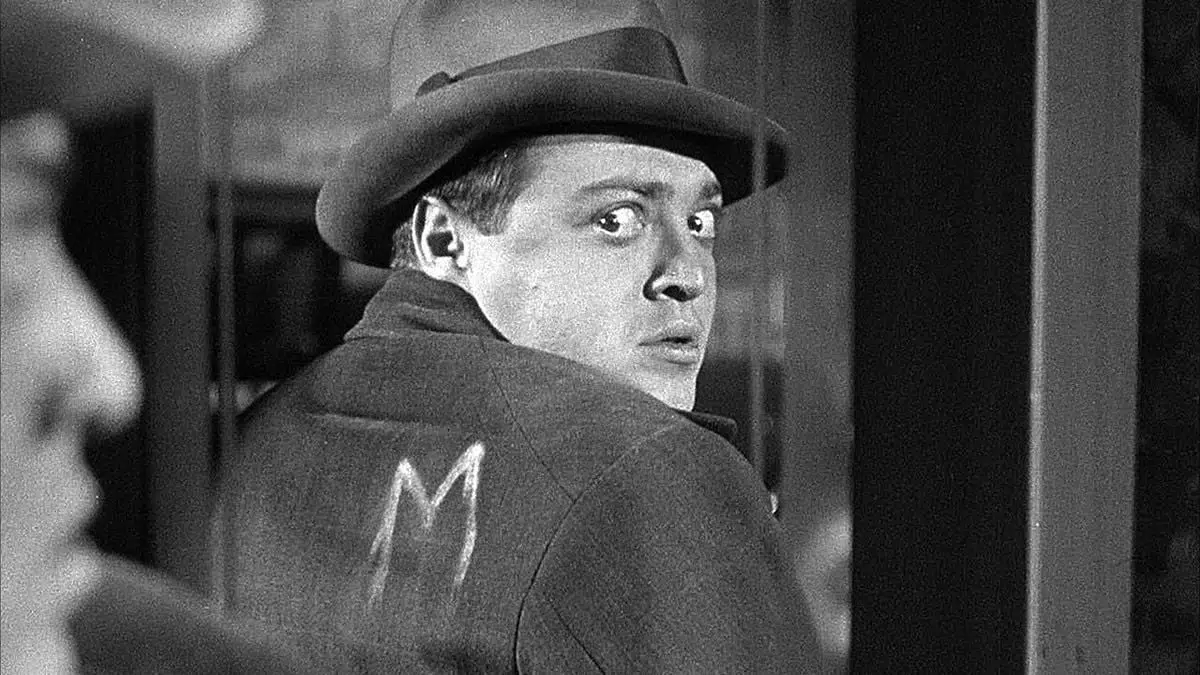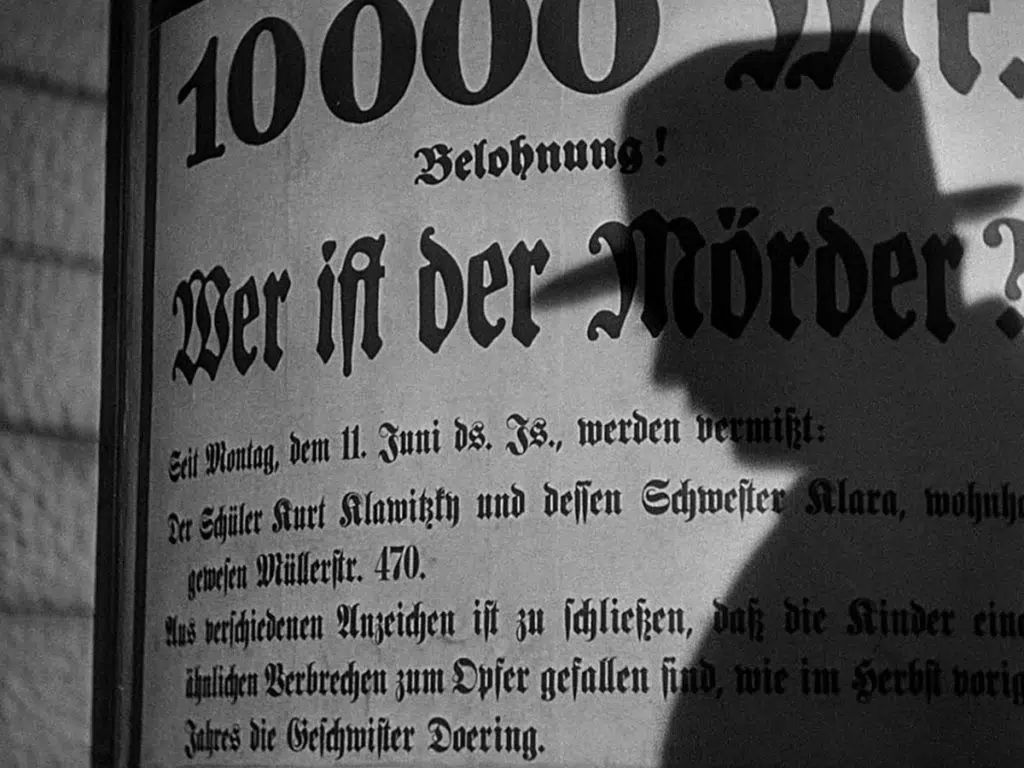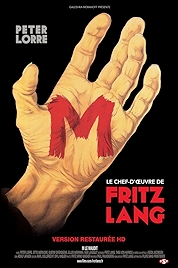The point of Fritz Lang’s 1931 film M – Eine Stadt Sucht einen Mörder is slightly lost when its truncated title, simply M, is used. This is a story not about a murderer (which is what the M stands for) but about the mob, when the rule of law is rejected in favour of a lynching.
Which all comes as a bit of a surprise if you’re watching M for the first time and only know it from its reputation. There are two other things that most people coming fresh to this film already “know”. These are a) that M is an expressionist masterpiece and b) it’s got Peter Lorre in it.
Dealing with these two swiftly, M is not a particularly expressionist movie – see Robert Wiene’s The Cabinet of Dr Caligari or Paul Leni’s Waxworks if that’s what you’re after. And Peter Lorre is barely in it. He’s more a presence, a threat, than a character, until things move into the ugly final few scenes, when Lang’s intentions really snap into focus and Lorre does come into his own.
The other single thing I “knew” about M is that it’s a technically brilliant film. This does turn out to be true, and Lang wastes no time in pulling off several remarkable camera movements (and a very smart edit) in the opening moments of the film, as if to say “relax, take it easy, you’re in the hands of someone who knows what he’s doing.”
Expressionism lurks at the edges, but for the most part Lang lays out the blueprint for the police procedurals we still avidly consume. The based-on-fact premise. The shadowy serial killer writing taunting letters to the police. The pin board where evidence is displayed for our benefit as much as the police’s. The forensics effort going into trapping the killer scientifically. The political pressure from “upstairs” on the hard pressed police. The inspired “I’ve got a hunch” moment. The loved-ones of the victims used as window dressing. The freak chance that eventually nails the villain. And so on.
It’s not all here: there’s no sign of a maverick cop with a messy backstory, for instance, but we’re most of the way there. Instead Lang and co-writer Thea von Harbou (his wife) present a still-audacious story of a town that bands together to nail the killer, not because they’re appalled at the crimes (though they are) but because the killer is bad for business – the cops are exhausted, the takings in the city’s bars and clubs are down, the criminal underworld is being tarred with the killer’s brush. These three groups are not all working in concert, but they are all pointing in the same direction, the masterstroke coming when the underworld, in a meeting in a smoky room intercut with the cops’ meeting in another smoky room in another part of town, decide to turn the city’s many beggars into an proto-CCTV network – eyes and ears everywhere. The murderer’s days are numbered.
Talking of blueprints, Peter Lorre is the template for every child-killing murderer ever since. In reality most murdered children are killed by their parents, but here Lorre’s Hans Beckert is the creepy, smooth-skinned, shifty, boggle-eyed weirdo we’ve now come to expect from screen killers. The role made Lorre’s name but he came to resent the box it put him in.
As said, he’s not in it much. Glimpsed as a shadow in one of the opening scenes, Lorre’s Hans disappears for much of the film, returning in time to be chased down by a crowd that’s lost its head and has decided that the criminal justice system will be too lenient on the man if he’s caught. They’re grim, these final scenes, and the terrified Hans does yank at our sympathies. Lang is more interested in the crowd.
A superbly tight drama, Lang’s first talkie also features whole stretches done as a silent movie. An added bonus is its picture of the Weimar era just before Hitler rose to prominence, using a manipulation of the mob as his engine. Unsurprisingly, Hitler banned it as soon as he came to power. Intriguingly, it was also the last film that Lang would collaborate on with his wife, Thea. She became a Nazi Party member; Lang, of Jewish descent (as was Lorre) did not and was soon on his way to France and then the US, where he’d become one of the archetypal monocle-wearing tyrannical directors of legend.
M – Eine Stadt sucht einen Mörder – Watch /buy the restored Criterion version at Amazon
Fritz Lang Box Set, including Metropolis, M and The Testament of Dr Mabuse – Buy it at Amazon
I am an Amazon affiliate
© Steve Morrissey 2021


